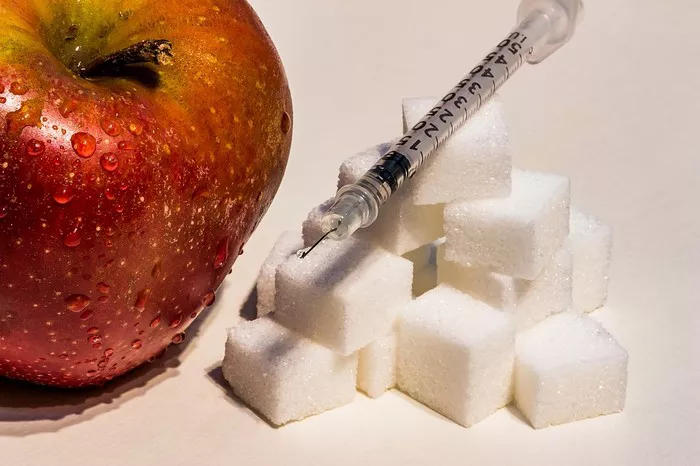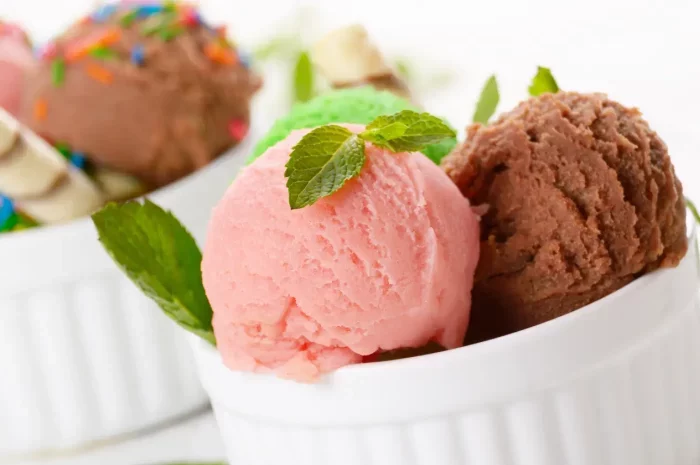Understanding Blood Sugar and Its Implications
Blood sugar, or blood glucose, is the primary sugar found in the blood and comes from the food we eat. It’s the main source of energy for our bodies and is vital for proper bodily function. However, maintaining balanced blood sugar levels is crucial as consistently high levels can lead to a range of health issues, including diabetes, cardiovascular diseases, and nerve damage.
Type 2 diabetes, characterized by insulin resistance and high blood sugar levels, is a prevalent condition that can significantly impact quality of life. Therefore, managing blood sugar through diet is essential for individuals with diabetes or those at risk. This article delves into dietary strategies to help reduce and manage blood sugar levels effectively.
The Glycemic Index and Its Role in Blood Sugar Management
The Glycemic Index (GI) is a ranking system for carbohydrates based on their impact on blood glucose levels. Foods with a high GI are rapidly digested and absorbed, causing a swift increase in blood sugar. Conversely, low-GI foods are digested and absorbed more slowly, resulting in a gradual rise in blood sugar.
Choosing Low-GI Foods
Incorporating low-GI foods into your diet can help stabilize blood sugar levels. Examples of low-GI foods include:
- Whole Grains: Oats, barley, and quinoa
- Legumes: Lentils, chickpeas, and black beans
- Non-Starchy Vegetables: Broccoli, spinach, and kale
- Fruits: Apples, berries, and pears
Moderate-GI Foods
While focusing on low-GI foods, moderate-GI foods can also be part of a balanced diet when consumed in moderation. These include:
- Whole Grain Breads
- Brown Rice
- Sweet Potatoes
High-GI Foods to Limit
High-GI foods should be limited, especially for individuals managing diabetes. These include:
- White Bread
- White Rice
- Sugary Beverages
- Processed Snacks
The Importance of Fiber
Fiber plays a crucial role in blood sugar management. It slows down the digestion of carbohydrates, leading to a slower and more controlled rise in blood sugar levels. There are two types of fiber: soluble and insoluble, both of which are beneficial.
Soluble Fiber
Soluble fiber dissolves in water to form a gel-like substance. It helps lower blood glucose levels and can be found in:
- Oats
- Beans
- Apples
- Citrus Fruits
Insoluble Fiber
Insoluble fiber doesn’t dissolve in water but aids in digestion and regularity. It can be found in:
- Whole Grains
- Nuts
- Vegetables
Daily Fiber Intake
The American Diabetes Association recommends consuming at least 25-30 grams of fiber per day. Incorporating a variety of high-fiber foods into meals and snacks can help achieve this goal.
Balancing Macronutrients
A balanced diet is essential for managing blood sugar. This includes an appropriate balance of carbohydrates, proteins, and fats.
Carbohydrates
Carbohydrates have the most significant impact on blood sugar. Therefore, choosing complex carbohydrates over simple carbohydrates is crucial. Complex carbohydrates, such as whole grains and vegetables, are digested more slowly and provide a steadier release of glucose.
Proteins
Protein is important for growth, repair, and overall health. It has a minimal effect on blood sugar levels and can help with satiety, reducing overall food intake. Good sources of protein include:
- Lean Meats: Chicken, turkey, and lean cuts of beef
- Fish: Especially fatty fish like salmon, which are high in omega-3 fatty acids
- Plant-Based Proteins: Beans, lentils, tofu, and tempeh
Fats
Healthy fats are essential for various bodily functions and can help in controlling blood sugar levels by slowing down the absorption of carbohydrates. Sources of healthy fats include:
- Monounsaturated Fats: Olive oil, avocados, and nuts
- Polyunsaturated Fats: Fatty fish, flaxseeds, and walnuts
Avoid trans fats and limit saturated fats, as these can negatively impact heart health, which is already a concern for individuals with diabetes.
Meal Timing and Portion Control
Meal timing and portion control are vital aspects of managing blood sugar levels. Eating smaller, more frequent meals can prevent large spikes in blood sugar.
Regular Meal Times
Eating at regular intervals helps maintain steady blood sugar levels. Skipping meals can lead to dips and subsequent spikes when you finally eat, which can be hard on the body.
Portion Control
Managing portion sizes, especially of carbohydrate-rich foods, is crucial. Using smaller plates, measuring food portions, and being mindful of serving sizes can help maintain appropriate intake levels.
Incorporating Low-Carb Diets
Low-carb diets have been shown to improve blood sugar control. These diets focus on reducing carbohydrate intake and increasing protein and fat intake.
Types of Low-Carb Diets
- Ketogenic Diet: Extremely low in carbohydrates, moderate in protein, and high in fat.
- Atkins Diet: Low-carb diet with a gradual increase in carbohydrate intake.
- Paleo Diet: Focuses on whole foods and eliminates grains and processed foods.
Benefits of Low-Carb Diets
Low-carb diets can lead to significant improvements in blood sugar levels and insulin sensitivity. However, it’s essential to monitor and adjust these diets to meet individual needs and ensure nutritional adequacy.
Hydration and Its Impact on Blood Sugar
Staying well-hydrated is crucial for overall health and can influence blood sugar levels. Water is the best choice for hydration.
Water
Drinking plenty of water helps the kidneys flush out excess sugar through urine. Aim for at least 8 glasses (64 ounces) of water per day, more if you are active or in a hot climate.
Avoid Sugary Drinks
Sugary drinks like soda, fruit juice, and sweetened teas can cause rapid spikes in blood sugar and should be avoided.
Mindful Eating and Stress Management
Mindful eating involves paying attention to the eating experience and can help manage blood sugar levels. Stress management is also crucial, as stress hormones can increase blood sugar levels.
Practicing Mindful Eating
- Eat Slowly: Take time to chew thoroughly and savor each bite.
- Focus on Food: Avoid distractions like TV or smartphones while eating.
- Listen to Hunger Cues: Eat when you’re hungry and stop when you’re full.
Managing Stress
Incorporating stress-reducing activities can help maintain healthy blood sugar levels. Techniques include:
- Exercise: Regular physical activity helps lower blood sugar and improve insulin sensitivity.
- Meditation and Deep Breathing: These practices can reduce stress hormones and improve blood sugar control.
- Adequate Sleep: Poor sleep can negatively impact blood sugar levels. Aim for 7-9 hours of quality sleep per night.
Specific Foods That Help Lower Blood Sugar
Several foods have been shown to help lower blood sugar levels and improve insulin sensitivity.
Cinnamon
Cinnamon has been studied for its potential to lower blood sugar levels. It may improve insulin sensitivity and lower fasting blood sugar.
Apple Cider Vinegar
Consuming apple cider vinegar before meals may help improve insulin sensitivity and lower blood sugar levels after eating.
Chromium-Rich Foods
Chromium is a mineral that enhances insulin’s action. Foods rich in chromium include:
- Broccoli
- Nuts
- Barley
Magnesium-Rich Foods
Magnesium plays a role in glucose metabolism. Foods high in magnesium include:
- Leafy Greens
- Nuts and Seeds
- Whole Grains
Berries
Berries, especially blueberries, are rich in antioxidants and fiber, which can help regulate blood sugar levels.
Garlic
Garlic has been shown to improve insulin sensitivity and lower fasting blood sugar levels.
Fenugreek
Fenugreek seeds are high in soluble fiber, which can help lower blood sugar by slowing down the digestion and absorption of carbohydrates.
Nuts
Nuts, such as almonds and walnuts, have a low GI and are high in healthy fats, fiber, and protein, all of which contribute to better blood sugar control.
The Role of Supplements
Certain supplements can aid in blood sugar management, though they should be used under the guidance of a healthcare professional.
Chromium
Chromium supplements may help improve blood sugar control in individuals with diabetes by enhancing insulin action.
Magnesium
Magnesium supplements can help improve insulin sensitivity and lower blood sugar levels in individuals with magnesium deficiency.
Alpha-Lipoic Acid
Alpha-lipoic acid is an antioxidant that has been shown to reduce blood sugar levels and improve insulin sensitivity.
Probiotics
Probiotics can improve gut health, which may have a positive impact on blood sugar levels.
Conclusion
Managing blood sugar levels through diet is a multifaceted approach that involves choosing the right types of foods, balancing macronutrients, maintaining regular meal times, and incorporating specific foods and supplements known to help regulate blood sugar. By understanding the glycemic index, focusing on fiber intake, practicing mindful eating, and managing stress, individuals can achieve better blood sugar control and overall health.
Implementing these dietary strategies requires commitment and consistency, but the benefits in terms of improved blood sugar management and reduced risk of diabetes-related complications make it a worthwhile endeavor. Always consult with a healthcare professional before making significant changes to your diet, especially if you have underlying health conditions or are on medication for
Related topics:
Effective Dietary Strategies to Lower A1C Levels


























